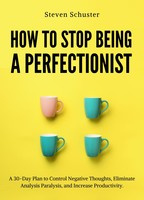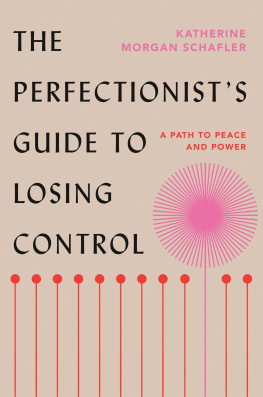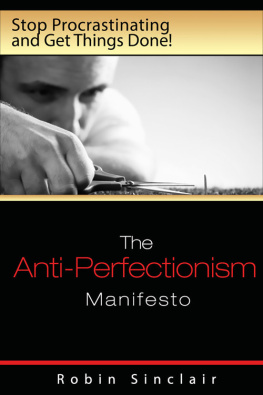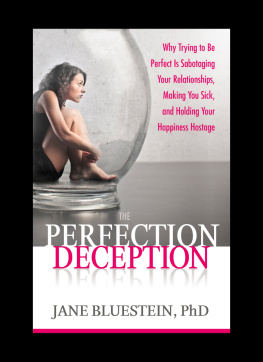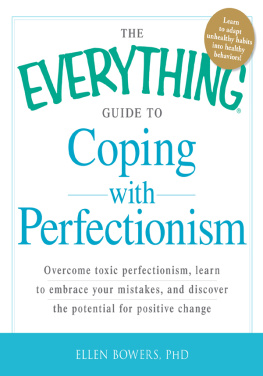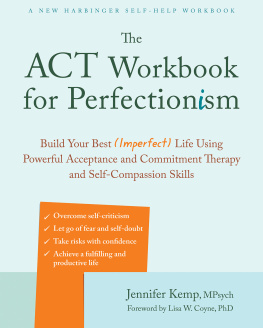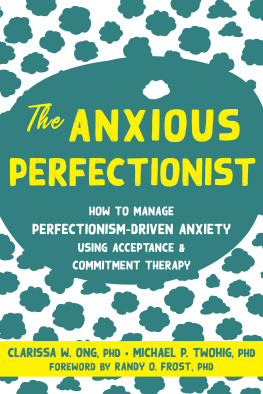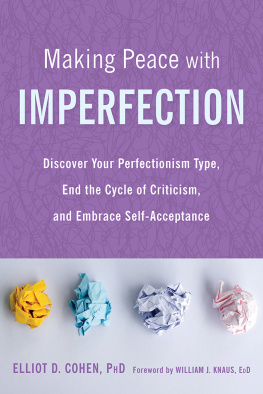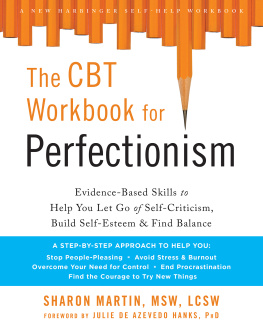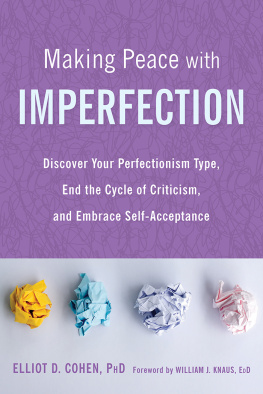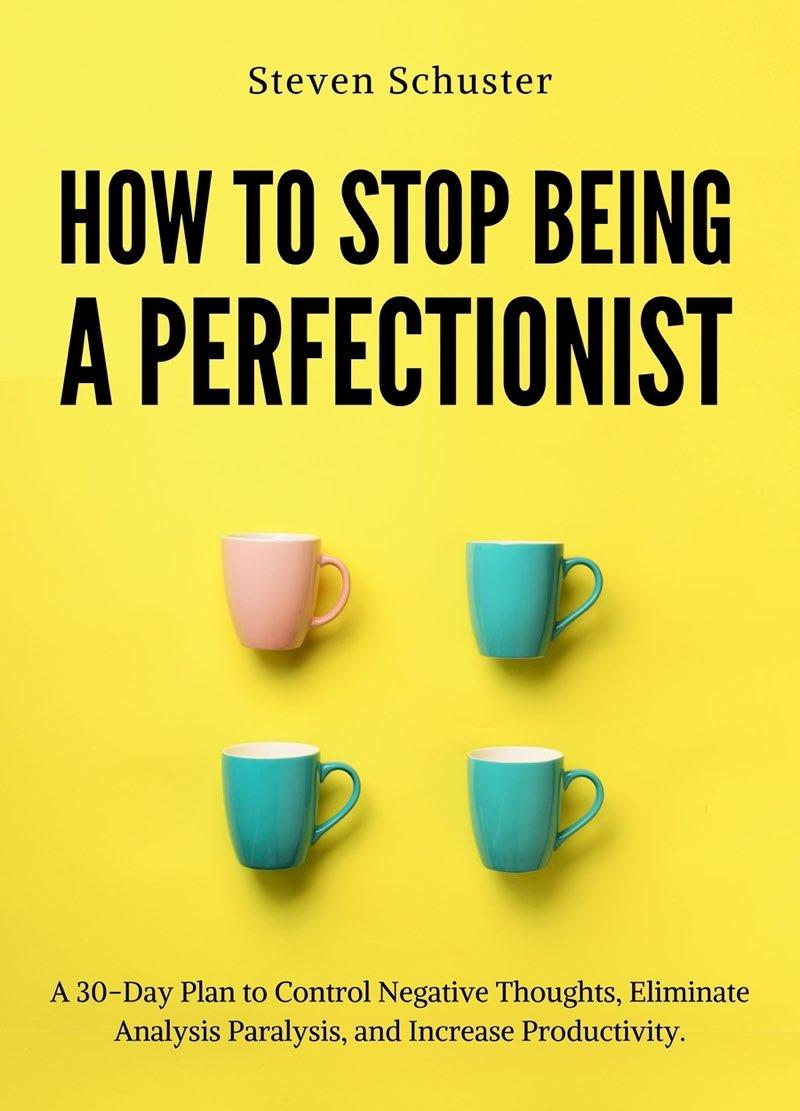How to Stop Being a Perfectionist
A 30-Day Plan to Control Negative Thoughts, Eliminate Analysis Paralysis,
Steven Schuster
Steven Schuster Books
Copyright 2021 by Steven Schuster. All rights reserved.
No part of this publication may be reproduced, stored in a retrieval system, or transmitted in any form or by any means, electronic, mechanical, photocopying, recording, scanning or otherwise, except as permitted under Section 107 or 108 of the 1976 United States Copyright Act, without the prior written permission of the author.
Limit of Liability/ Disclaimer of Warranty: The author makes no representations or warranties with respect to the accuracy or completeness of the contents of this work and specifically disclaims all warranties, including without limitation warranties of fitness for a particular purpose. No warranty may be created or extended by sales or promotional materials. The advice and recipes contained herein may not be suitable for everyone. This work is sold with the understanding that the author is not engaged in rendering medical, legal or other professional advice or services. If professional assistance is required, the services of a competent professional person should be sought. The author shall not be liable for damages arising herefrom. The fact that an individual, organization of website is referred to in this work as a citation and/or potential source of further information does not mean that the author endorses the information the individual, organization to website may provide or recommendations they/it may make. Further, readers should be aware that Internet websites listed in this work might have changed or disappeared between when this work was written and when it is read.
For general information on the products and services or to obtain technical support, please contact the author.
Contents
Introduction
Are you harder on yourself than everyone else? Do you hold yourself to incredibly high standards and are disappointed with yourself when you fail to meet them? Do you find that sometimes those self-imposed standards put so much pressure on you that they can actually end up holding you back? If so, then your perfectionism might be working overtime. While this may seem like an average problem, it can become a pervasive presence that will slowly sabotage your growth and limit your potential.
Perfectionism has a twin brother, you see, called procrastination. In most cases, they show up together. They are like misbehaving children, enforcing each other in their deeds. Perfectionism may say, This is not done well enough. I cant give this work out from my hands. Procrastination would reply, Damn right, lets just sit around and think about how we could improve this work. But in the meantime, lets have a snack, it helps with thinking. Also, lets take a nap, our brain needs rest. How about some entertainment? No wonder our thinking is so dry. We havent had a good laugh in ages. And on and on it goes.
Procrastination is the ultimate road to hell paved with good intentions. No one ever procrastinates without a good reasonor should I rather say, a well-rounded rationalization. Our thinking mind is tricky that way; it can provide a convincing explanation as to why we should or shouldnt do something. How does the thinking mind decide which action it will defend? Well, our emotional mind is the judge of that.
NYU psychologist and the author of the book The Happiness Hypothesis, Jonathan Haidt explained this phenomenon with the metaphor of the rider and the elephant. Our emotional mind is the elephant, the thinking mind is the rider. While the rider of the elephant seems to be in charge, when theres a disagreement between them, the elephant usually prevails.
Chip and Dan Heath expand on this metaphor in their book, Switch: How to Change Things When Change Is Hard. They argue that the rider (the thinking mind) is responsible for planning and direction. But it often falls into the trap of overthinking, trying to motivate the elephant (the emotional mind) to get things done and avoid instant gratification. Its an exhausting business. In psychology, we call this phenomenon willpower depletion. We consume all of our rational, delayed gratification-bound credits over time. This is why it is more likely that we will likely choose cookies instead of baby carrots to snack on in the evening.
Procrastination is the favorite pastime of the elephant. And a comfortable go-to place. We learn to procrastinate as early as childhood. We leave our homework to the last minute because we watch TV. We get out of bed just before the school bus arrives because we stayed up late finishing our homework. We even observe our parents putting off tasks, so we have a lot of fertile ground to adopt this bad habit from and practice it. Procrastination rolls over into our adulthood. We postpone important tasks and choose immediate gratification instead. It feels better in the moment, doesnt it?
We invent all sorts of creative reasons why we procrastinate. Still, it can really be broken down to just a handful of emotionally motivated reasons in reality. We fear failure. We fear judgment. We fear to prove to others (and ourselves) that we dont measure up. We fear imperfection. We feel too much pressure to perform, so we avert our focus from the task at hand counterintuitively. Some are just simply bad at time management. If you recognized yourself in these, worry not. This book will strive to distill the ways the perfectionist mind works. You will discover the positives and negatives that can come from being a perfectionist and what you can do about it.
This journey will leave you with a greater understanding of yourself. You will be able to overcome the challenges of perfectionism with a simple yet powerful 30-day program. Get ever closer to reaching your full potential and living the productive, prosperous life you deserve.
How Does the Perfectionist Mind Work?
D ory, a computer model designer, considered herself a person with a growth mindset. She was never satisfied with the work she produced. Day after day, she scrutinized her projects, finding flaws in the color choices, template layout, size and font of the letters, and so on. She was the first to arrive and last to leave her office. Despite her outstanding hard work, she never got a promotion, and her boss instead scolded her when she turned in her projects late. The boss didnt care so much about the immaculate symmetry, the Rembrandt-shaming color composition, and extremely well-matched font-letter sizing. He just wanted good enough, but punctual, work.
Despite telling Dory repeatedly, she didnt seem to get why her boss was critical of her. She felt inadequate, and in her mind, the problem was that she didnt do a perfect enough job. So, each time, she put some more work into the project and delivered it even later. Dory was struggling with a vicious reinforcing loop of perfectionism. She was blindsided with the fact that her striving for providing perfect work was the problem. She hated her job, her boss, and ultimately herself for being so deficient.
Why do we want to be perfect? Some people think Martha Stewarts ideas on entertaining and decorating or the influence of online platforms like Pinterest or Instagram are to blame. In reality, all these sites highlight the perfection gap people have always worried about by making it more visible in popular culture.
We compare ourselves to others. We want to live up to the images we create in our own mind about the work we want to deliver, the lives we wish and expect for ourselves. The problem is that these images are often unrealistic, impractical, and have such high standards that they are impossible to meet. They can make us very hard on ourselves when we fail to reach them. And we do fail.

